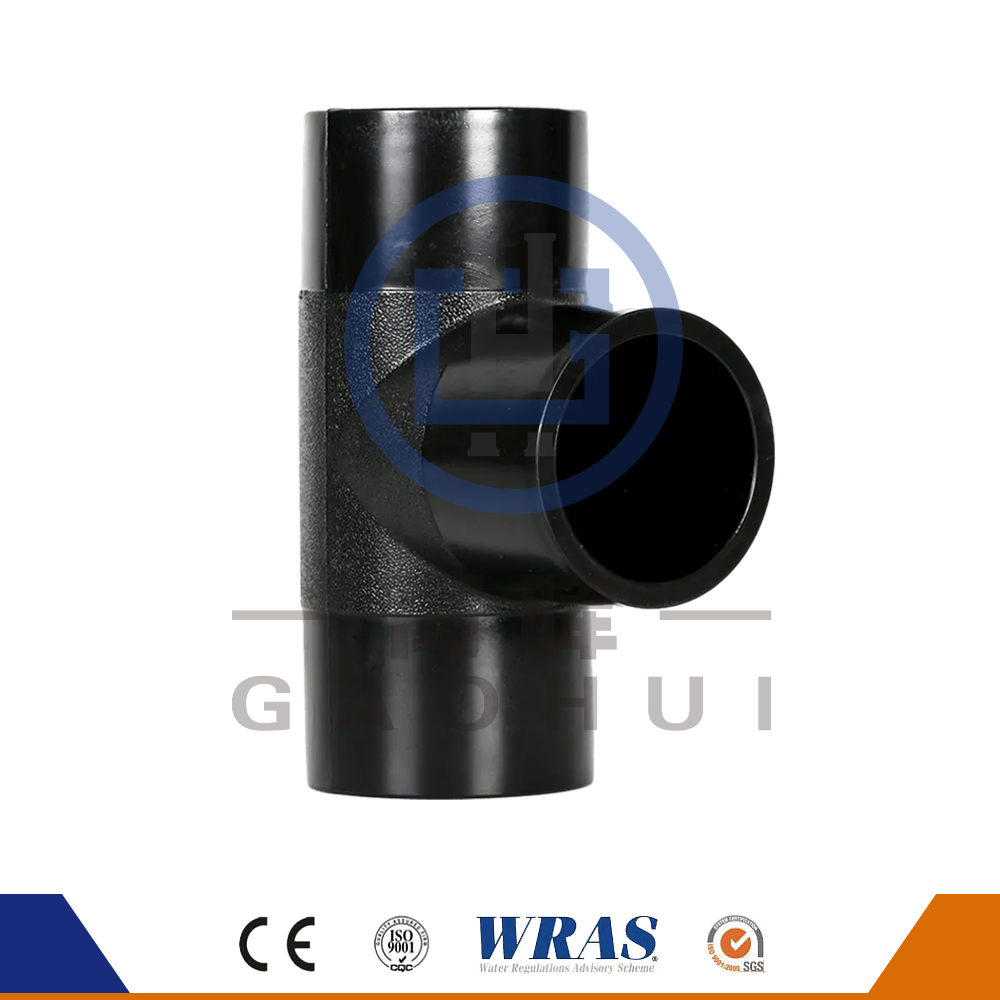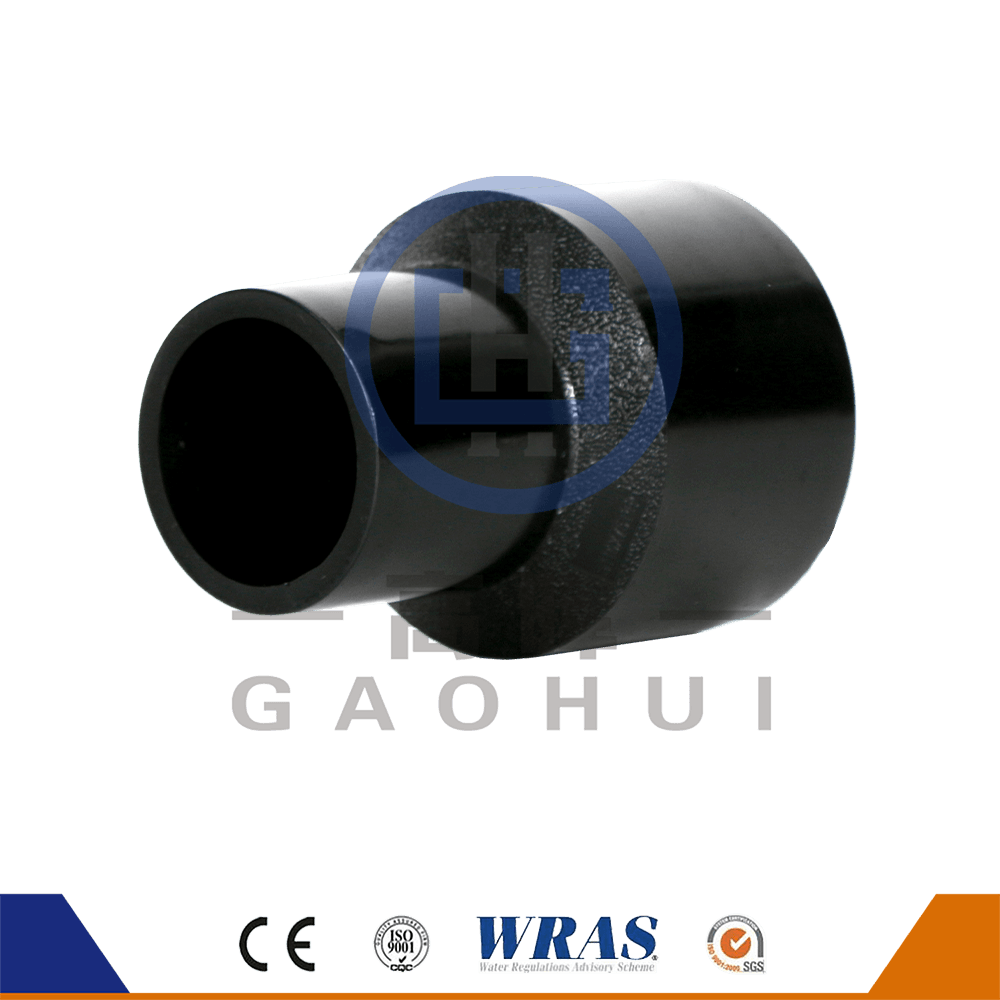Content
In modern urban infrastructure construction and industrial projects, pipeline systems play a vital role. With the increasing attention to environmental protection and safety, HDPE butt fusion fitting has become an important choice in the field of pipeline construction due to its unique performance and advantages. Especially in some environments that require high strength, corrosion resistance and strong environmental protection, HDPE butt fusion fitting is widely used.
Overview of HDPE butt fusion fitting
HDPE butt fusion fitting is a component that connects two high-density polyethylene (HDPE) pipes through butt welding technology. This technology heats the two ends of the pipe to melt it and tightly connect it together under pressure to form a strong and seamless connection. Compared with traditional metal pipe connection methods, the advantage of HDPE butt fusion fitting is that it does not require the use of additional connectors, can provide higher connection strength and sealing, and reduce the potential risk of leakage.
Advantages of HDPE butt fusion fitting
HDPE butt fusion fitting has become the preferred material in pipeline construction due to its physical and chemical properties.
High corrosion resistance
HDPE materials are very resistant to chemical substances. Whether it is acid, alkali, salt, or organic solvents, HDPE pipes can effectively resist their erosion. Especially in industries such as chemical and sewage treatment, pipelines often need to transport corrosive liquids or gases, and HDPE's corrosion resistance makes it an ideal choice.
High impact resistance and toughness
HDPE pipes have very strong impact resistance, can withstand external impact and temperature changes, and are suitable for various complex environments. This makes HDPE butt fusion fittings the good choice for various climates and unstable geological environments.
Wear resistance and low friction coefficient
HDPE has a smooth surface and a low friction coefficient, which makes the fluid encounter less resistance when flowing in the pipeline, reducing energy consumption and improving transportation efficiency. Especially when conveying liquids containing particles, the wear resistance of HDPE pipes can effectively reduce pipe wear.
Environmental protection and sustainability
HDPE is an environmentally friendly material that is recyclable and has low energy consumption during the production process. With the global emphasis on environmental protection and sustainable development, the environmental advantages of HDPE pipes have made it widely favored in pipeline construction.
Simple connection process
HDPE butt fusion fittings are connected by welding, and no additional bolts or sealing materials are required. By heating the ends of the pipes and connecting them, a strong seamless joint is formed. This method saves time and reduces construction complexity, improving installation efficiency.
Application areas of HDPE butt fusion fittings
HDPE butt fusion fittings are widely used in many industries and fields, and their performance enables them to play an important role in different application environments.
Municipal water supply and drainage system
In municipal engineering, HDPE pipes are widely used in water supply and drainage systems due to their corrosion resistance, wear resistance, and good frost resistance. HDPE butt fusion fitting can effectively reduce leakage problems at joints and improve the stability and safety of water supply. Compared with traditional metal pipes, HDPE pipes have a longer service life, are more adaptable to different geological conditions, and reduce the maintenance and replacement costs caused by pipe corrosion.
HDPE pipes can withstand erosion from external factors such as chemicals and microorganisms in the soil, greatly extending the service life of the pipe system, and are particularly suitable for drinking water delivery systems with high water quality requirements. In addition, the flexibility of HDPE pipes also makes it easier to install in complex terrain and environments.
Oil and gas transportation
Oil and gas pipelines require extremely high corrosion resistance and pressure resistance, and HDPE pipes have become an ideal choice in oil and gas delivery systems due to their high corrosion resistance, good toughness and wear resistance. The sealing of HDPE pipes also makes it safer when transporting leaky liquids.
Especially in deep-sea oil and gas extraction and long-distance delivery pipelines, HDPE pipes show their significant advantages. Due to its low temperature resistance and UV resistance, HDPE pipes can work stably for a long time in various environments.
Industrial fluid transportation
Chemical, pharmaceutical, food processing and other industries need to transport various corrosive, viscous or high-temperature fluids. HDPE butt fusion fittings play a vital role in these industries. Since HDPE pipes are not affected by corrosion and can operate stably in high temperature environments, they can ensure the safe transportation of fluids.
For example, in chemical plants, HDPE pipes can transport chemicals such as benzene, alcohols, and acids, avoiding leakage, pollution and safety hazards caused by corrosion of metal pipes. In the pharmaceutical industry, HDPE pipes ensure the hygiene and safety of fluid transportation during the production process and meet strict hygiene standards.
Mining and civil engineering
In mining and civil engineering, the wear resistance and high strength of HDPE butt fusion fittings make them an ideal choice. The mining industry usually needs to transport fluids containing particles such as sand, gravel, and slurry. HDPE pipes can effectively reduce pipe damage caused by abrasion of particles.
At the same time, the corrosion resistance and UV resistance of HDPE pipes enable them to be used for a long time in the field environment and maintain stable operation under various complex geological and climatic conditions. Especially in the process of mining transportation and mining, the application of HDPE pipes has greatly improved the efficiency of slurry transportation and reduced the problems caused by traditional metal pipes.
Agricultural irrigation and gardening
In the field of agricultural irrigation, HDPE pipes also have important applications. Its corrosion resistance, wear resistance and flexibility make it an ideal choice for modern agricultural irrigation systems. Whether it is drip irrigation, sprinkler irrigation or drainage system, HDPE pipes can provide reliable solutions.
Especially in areas with scarce water resources, HDPE pipes can effectively improve the efficiency of water resource utilization and reduce water resource waste caused by pipeline leakage and corrosion. Due to its good UV resistance, HDPE pipes can also operate stably for a long time in open air environments.


 English
English русский
русский عربى
عربى











